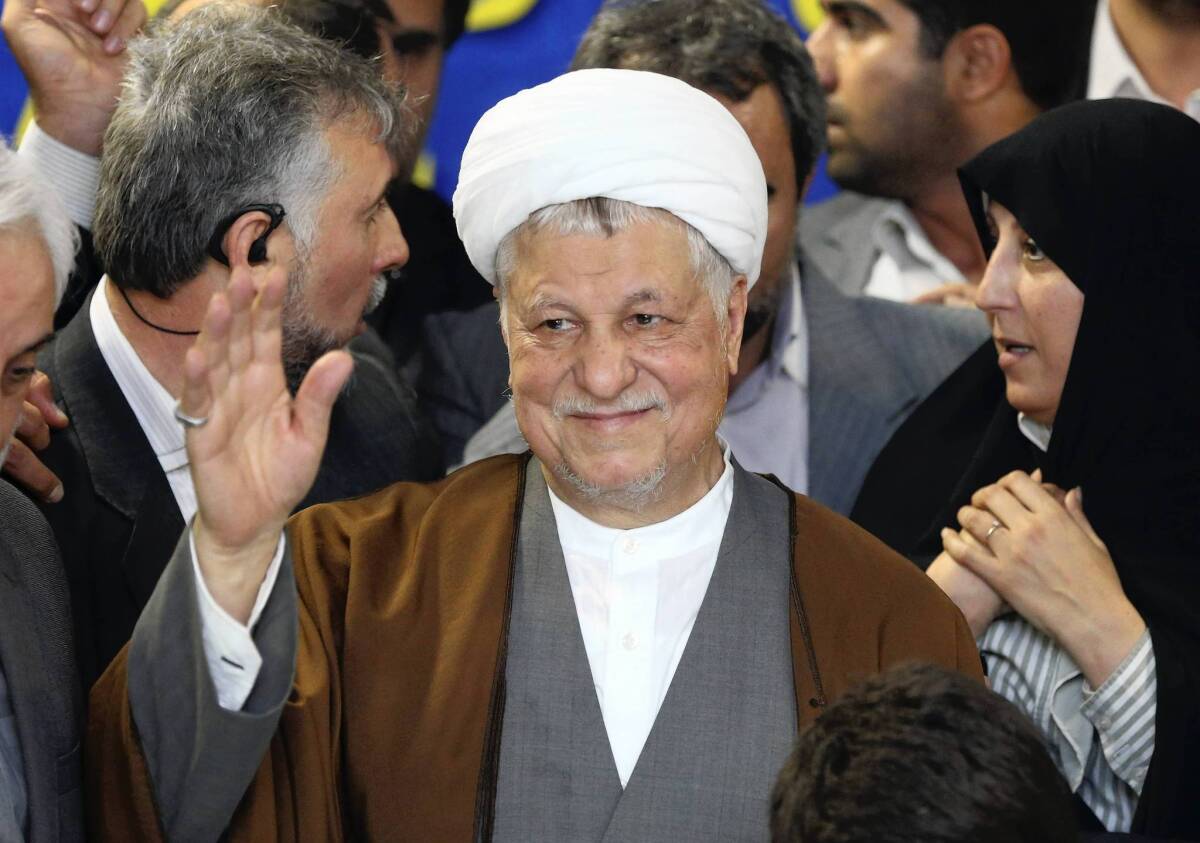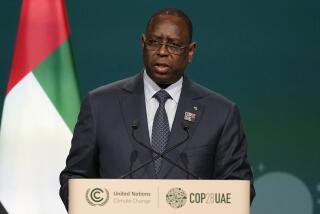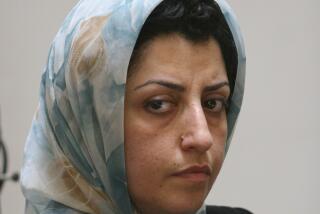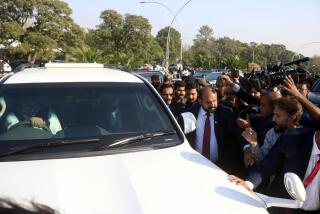Iran disqualifies 2 high-profile presidential candidates

TEHRAN — In a highly anticipated decision likely to spark controversy, Iran’s supervisory electoral body on Tuesday disqualified two high-profile candidates from next month’s presidential race after both were assailed as disloyal to the nation’s supreme leader, Ayatollah Ali Khamenei.
The powerful Guardian Council, composed of senior clerics and jurists, gave no reason for barring the would-be candidates, former President Ali Akbar Hashemi Rafsanjani and Esfandiar Rahim Mashaei, a confidant of outgoing President Mahmoud Ahmadinejad. Both signed up to run in the final minutes before the deadline and were considered wild cards.
The Guardian Council approved a list of eight candidates for the June 14 ballot, heavily weighted toward hard-liners close to the supreme leader. Almost 700 prospective candidates had signed up, but few had a realistic chance of making the cut.
By disqualifying the two prominent figures, the government risks deflating turnout. Khamenei has called for robust turnout as a response to Iran’s many “enemies,” chief among them the United States.
Critics have charged that the two disqualified hopefuls, though bitter rivals, were not sufficiently loyal to the supreme leader, who has the final say on issues of state. Both have denounced the allegations of “sedition” against them as part of a smear campaign
The disqualification of Rafsanjani, 78, was especially surprising to some because he is a longtime pillar of the 1979 Iranian Revolution and a colleague of the supreme leader. He also served as president from 1989 to 1997. Reformists had rallied around the prospect of his candidacy, viewing him as a pragmatist capable of loosening up the system and attracting foreign investment to help Iran’s economy, which has been battered by international sanctions.
Many Iranians view the economy as the major issue in the race, as they cope with rising prices and unemployment under the Western-led sanctions, which have restricted exports and strangled the financial sector.
The disqualification of Mashaei was less surprising because he has been denounced as the ringleader of a “deviant current” that looks askance at clerical rule and has an unorthodox view of Islam.
The Iranian leadership is keen to avoid protests or problems after mass demonstrations followed the last presidential balloting, in 2009. In that election, Ahmadinejad was reelected amid allegations of vote rigging that triggered large-scale protests, embarrassing the government. Authorities launched a crackdown against the reformist Green movement.
The list of approved candidates includes three conservatives considered the potential front-runners: Saeed Jalili, Iran’s chief nuclear negotiator; Ali Akbar Velayati, a senior aide to the supreme leader; and Tehran Mayor Mohammed Baqer Qalibaf.
Also on the ballot is Gholam Ali Haddad Adel, a longtime member of the parliament and an in-law of the supreme leader.
Special correspondent Mostaghim reported from Tehran and Times staff writer McDonnell from Beirut.
More to Read
Start your day right
Sign up for Essential California for news, features and recommendations from the L.A. Times and beyond in your inbox six days a week.
You may occasionally receive promotional content from the Los Angeles Times.






